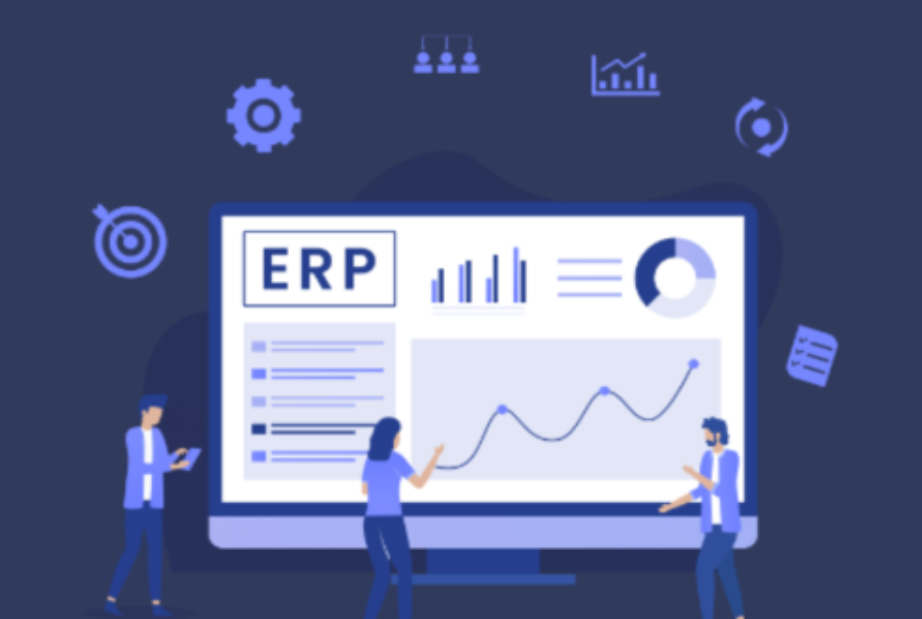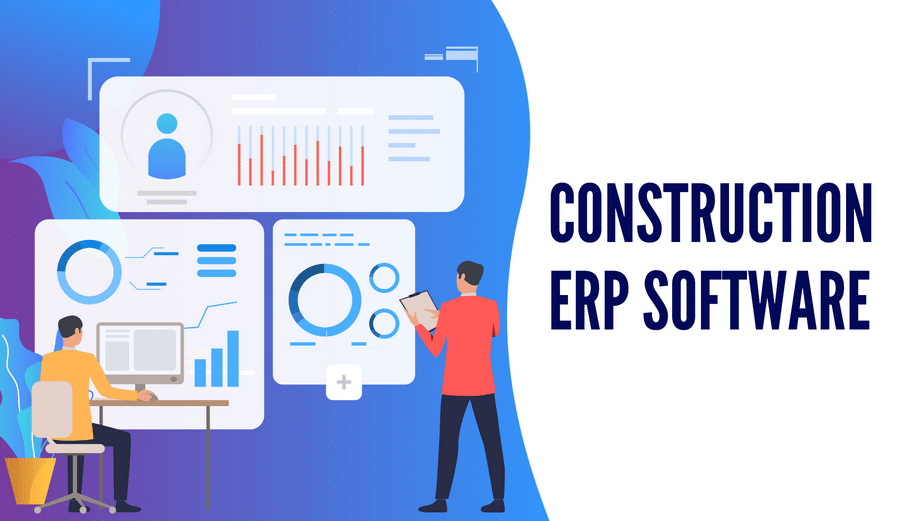ERP Online: Revolutionizing Business Management – In today’s digital age, businesses are constantly seeking ways to streamline their operations, enhance efficiency, and stay ahead of the competition. One solution that has gained significant traction in recent years is Enterprise Resource Planning (ERP) software, particularly in its online form.
ERP Online offers a comprehensive suite of tools and functionalities designed to integrate various business processes into a centralized system, accessible through the internet. Let’s delve deeper into the world of ERP Online, exploring its benefits, key features, implementation strategies, challenges, and future trends.
Benefits of ERP Online
Efficiency and Productivity
One of the primary advantages of ERP Online is its ability to streamline workflows and automate repetitive tasks. By consolidating data from different departments such as finance, human resources, and inventory management into a single platform, employees can work more efficiently, leading to increased productivity levels.
Cost Savings
Implementing ERP Online can result in significant cost savings for businesses. By eliminating the need for multiple standalone systems and reducing manual processes, organizations can lower operational expenses and allocate resources more effectively.
Real-time Data Access
With ERP Online, users have access to real-time insights and analytics, enabling them to make informed decisions quickly. Whether it’s monitoring inventory levels, tracking sales performance, or analyzing financial data, having up-to-date information at their fingertips empowers businesses to respond promptly to changing market conditions.
Scalability
Another benefit of ERP Online is its scalability. Whether a business is a small startup or a large enterprise, ERP systems can adapt to evolving needs and accommodate growth without significant disruptions. This scalability ensures that organizations can continue to leverage the benefits of ERP as they expand their operations.
Key Features of ERP Online
Integration Capabilities
ERP Online offers seamless integration with other software applications and third-party tools, allowing businesses to centralize their operations and improve collaboration across departments. Whether it’s integrating with customer relationship management (CRM) systems or e-commerce platforms, ERP ensures data consistency and accuracy throughout the organization.
Customization Options
Every business is unique, with its own set of requirements and processes. ERP Online provides customizable features and modules that can be tailored to suit specific business needs, ensuring that organizations can optimize their workflows and achieve maximum efficiency.
Security Measures
Data security is a top priority for businesses, especially when it comes to sensitive information such as financial records and customer data. ERP Online employs robust security measures, including encryption, user authentication, and role-based access control, to safeguard against unauthorized access and data breaches.
Implementing ERP Online
Assessing Needs and Requirements
Before implementing ERP Online, it’s essential for businesses to assess their needs and requirements carefully. This involves evaluating existing processes, identifying pain points, and defining clear objectives for the ERP implementation.
Selecting the Right Vendor
Choosing the right ERP vendor is critical to the success of the implementation process. Businesses should conduct thorough research, request demonstrations, and seek recommendations from industry peers to ensure they select a vendor that aligns with their goals and budget.
Training and Onboarding
Effective training and onboarding are key to maximizing the benefits of ERP Online. Businesses should invest in comprehensive training programs to ensure that employees are proficient in using the system and understand its functionalities.
Common Challenges of ERP Online
Data Migration Issues
One of the most common challenges of ERP implementation is data migration. Migrating data from legacy systems to the new ERP platform can be complex and time-consuming, requiring careful planning and execution to avoid data loss or corruption.
Resistance to Change
Resistance to change is another hurdle that businesses may encounter when implementing ERP Online. Employees may be reluctant to adopt new technologies or processes, fearing disruptions to their daily routines. Effective change management strategies, such as communication and training, can help alleviate resistance and promote acceptance of the ERP system.
Technical Support
Technical issues and system downtime can disrupt business operations and impede productivity. Having access to reliable technical support and maintenance services is essential for resolving issues promptly and ensuring smooth ERP Online performance.
Future Trends in ERP Online
Artificial Intelligence Integration
The integration of artificial intelligence (AI) technologies such as machine learning and predictive analytics is poised to revolutionize ERP Online. AI-driven insights and automation capabilities will enable businesses to optimize decision-making processes and enhance operational efficiency.
Cloud-Based Solutions
Cloud-based ERP solutions are gaining popularity due to their flexibility, scalability, and cost-effectiveness. By leveraging cloud infrastructure, businesses can access their ERP systems from anywhere, at any time, and scale resources according to demand, without the need for extensive hardware investments.
Mobile Accessibility
With the increasing prevalence of mobile devices, ERP vendors are focusing on enhancing mobile accessibility. Mobile ERP applications allow users to access critical business data and perform tasks on the go, empowering them to stay productive regardless of their location.
Conclusion
ERP Online has emerged as a powerful tool for businesses seeking to streamline their operations, improve efficiency, and drive growth. With its myriad benefits, customizable features, and future-ready capabilities, ERP Online is poised to play a central role in the digital transformation journey of organizations across industries.
FAQs
What is ERP Online?
ERP Online refers to the cloud-based deployment of Enterprise Resource Planning software, enabling businesses to access comprehensive business management tools and functionalities via the internet.
How does ERP Online benefit businesses?
ERP Online offers benefits such as increased efficiency, cost savings, real-time data access, scalability, and seamless integration capabilities.
What are some common challenges of implementing ERP Online?
Common challenges include data migration issues, resistance to change, and the need for reliable technical support.
What are the key features of ERP Online?
Key features include integration capabilities, customization options, and robust security measures.
What are the future trends in ERP Online?
Future trends include the integration of artificial intelligence, adoption of cloud-based solutions, and enhanced mobile accessibility.



